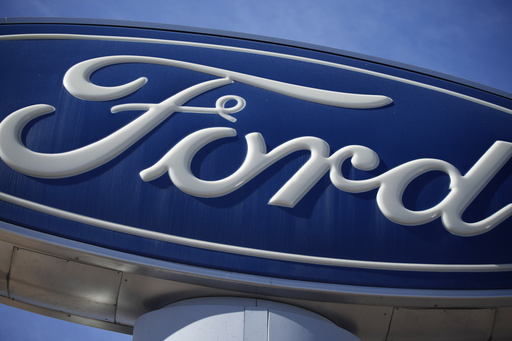Ford Motor Co. is adjusting its electric vehicle focus to combat competition from automakers with lower costs. The company plans to introduce two new electric pickup trucks and a commercial van, emphasizing that they will be more affordable, offer longer range, and become profitable within a year of hitting the market.
Although details about the new products are scarce, Ford disclosed that the production of the next-generation full-size electric pickup truck in Tennessee is postponed by 18 months to 2027. An additional mid-sized pickup truck, based on newly developed underpinnings by a small team in California, is set to debut in 2027. Production of an unspecified electric van will commence in 2026 at a plant near Cleveland.
The company will incur a $400 million write-down for existing large electric SUVs and expects up to $1.5 billion in additional expenses related to the shift in strategy. Chief Financial Officer John Lawler affirmed Ford’s commitment to building a competitive and profitable business in a statement.
Ford will reduce capital spending on EVs, reallocating 30% of its annual capital budget, down from the current 40%. Despite previous ambitions to develop profitable EVs, Ford reported a $2.46 billion loss on them in the first half of the year, impacting profits from its traditional gas-powered and commercial vehicles.
Citing the rapidly evolving global EV market, Ford acknowledges the need to adapt to compete with Chinese automakers with lower production and engineering costs. The company recognizes cost-conscious consumers and intensified competition as reasons behind its strategic shift.
In response to growing consumer concerns about range and recharging infrastructure, Ford aims to introduce more affordable EV models based on new platforms. Further information will be disclosed at an event in the first half of the coming year.
In the U.S., Ford’s primary market, EV sales continue to rise but have seen a slowdown as practical consumers express apprehensions about range and charging conveniences. Market dynamics have prompted Tesla Inc. to lower prices, prompting competition to follow suit.
While U.S. EV sales grew approximately 7% in the first half of the year to 599,134 units, gas-electric hybrid sales surged by 35.3% to 715,768 units during the same period, surpassing EV sales. Consequently, Ford opted for hybrid technology in its larger SUVs due to cost-effectiveness compared to full EVs.
Following the strategic shift, Ford’s shares increased by 2.1% in Wednesday’s trading session.


